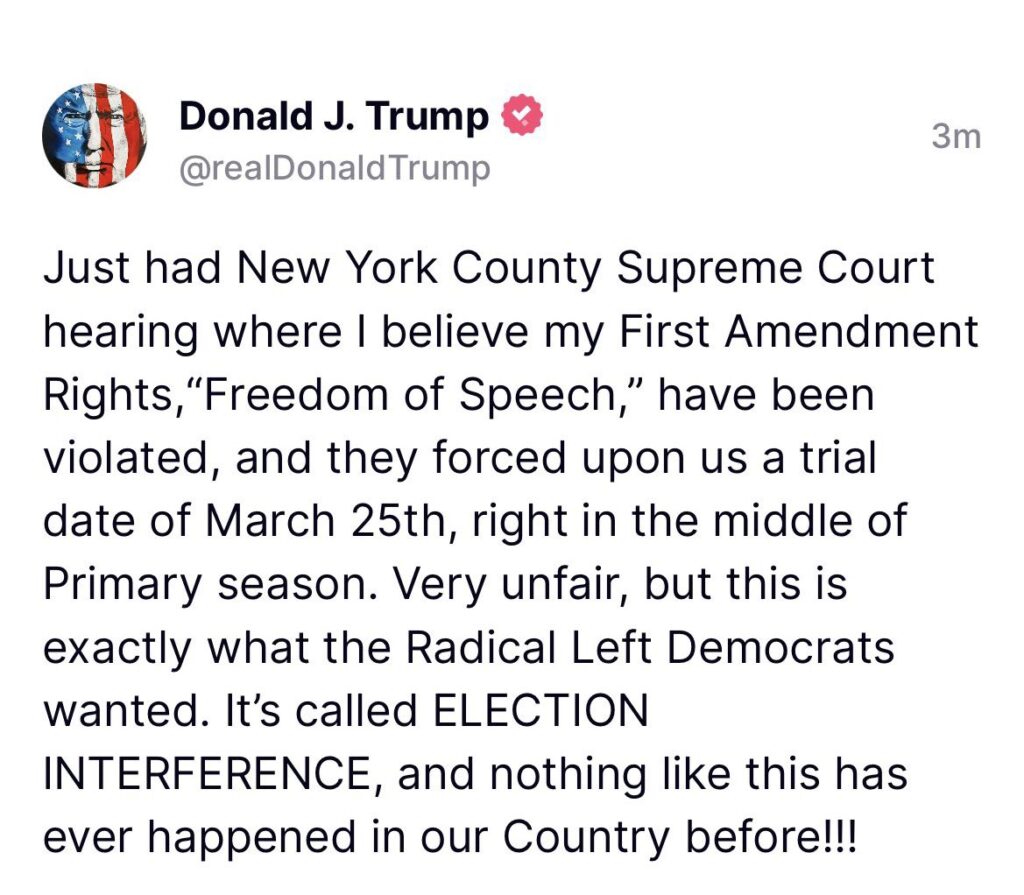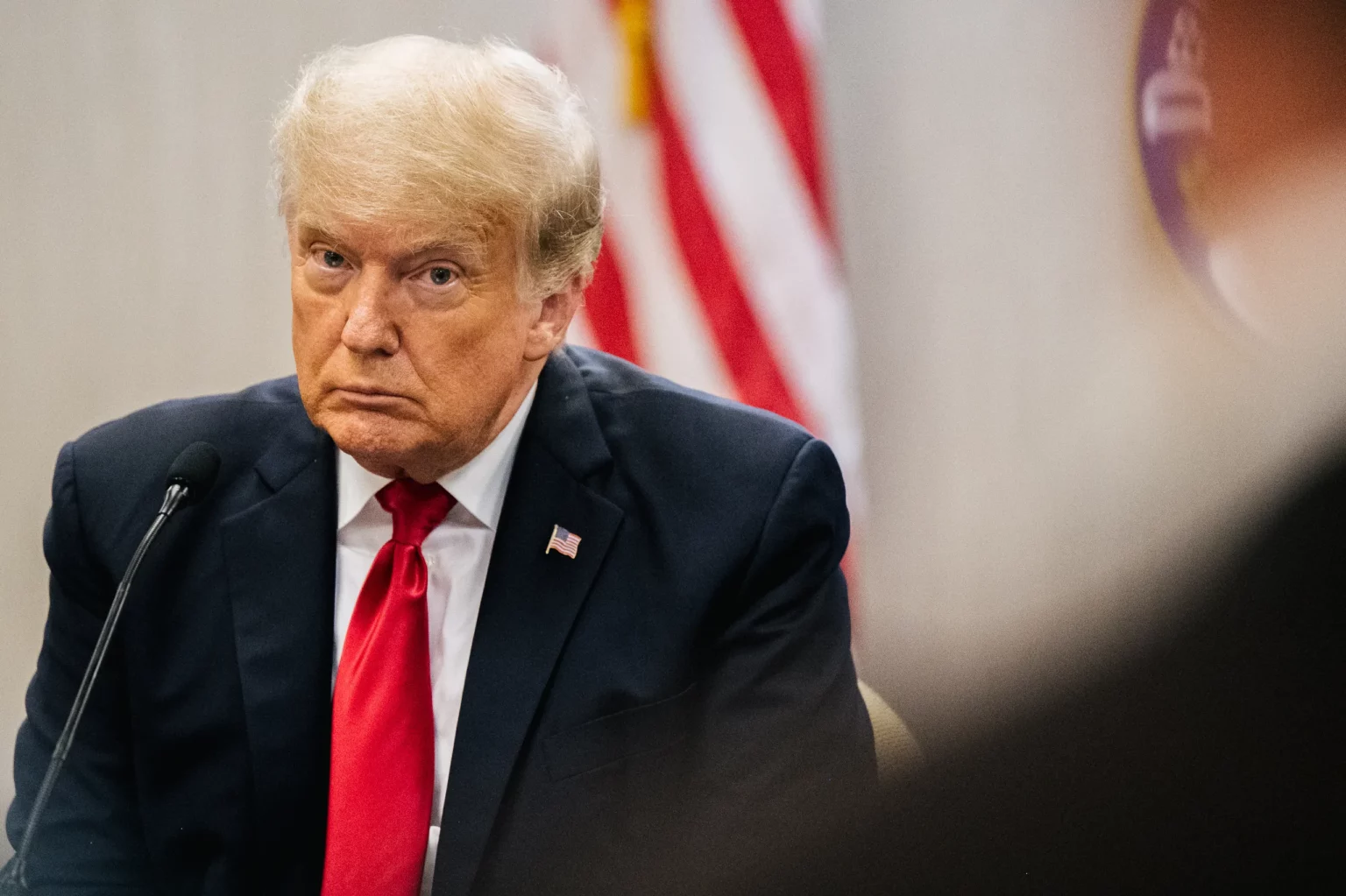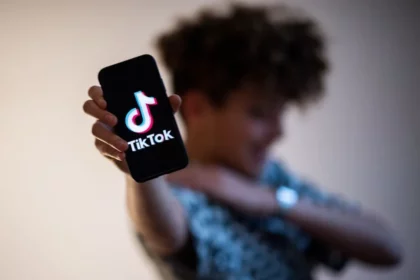Donald Trump is scheduled to go on trial on March 25 in his criminal case in New York where he is charged with falsifying business records in connection with hush money payments over alleged sexual encounters.
Trump appeared by video before New York State Supreme Court Justice Juan Merchan, who set the trial date after going over a May 8 order that bars the former president from publicly disclosing details about witnesses or other evidence.
This is not a gag order. Trump is free to campaign as long as he does not violate the rules of the protective order.”
the judge said.
Trump’s campaign for the Republican party nomination is set to be interrupted by the trial, however, with the pivotal “Super Tuesday” primaries likely happening on March 5. If the nomination is close, the battle could go into late May or even June. Iowa and New Hampshire, two make-or-break states, will likely have their primaries in January or February.
Wearing a navy blue suit and a red, white, and blue striped tie, Trump sat before three US flags, with his hands folded in a pyramid before the hearing. He and his lawyer appeared to have a copy of the protective order in front of them.
Within minutes of the conclusion of the hearing, Trump posted on his social media site that the judge was being unfair.

Merchan warned Trump during the hearing there is a wide range of sanctions available if the order is violated, including finding him in contempt of court, although the judge didn’t spell out the possible sanctions he might impose in that case.
Trump was also told he can only review some evidence in the case only in the presence of his lawyers and ordered not to copy, photograph or disseminate it on his social media site.
The judge’s directives come as Trump is trying to get the criminal case transferred to federal court. A June 27 hearing is scheduled on that request.
Trump was indicted in March by a Manhattan grand jury on 34 counts of falsifying business records for directing payments to adult film actress Stormy Daniels during his 2016 campaign to keep her quiet about a sexual encounter she says they had a decade earlier. Trump has pleaded not guilty and denies the alleged affair.
When he was arraigned on April 4, prosecutors expressed concern that he had made derogatory public statements about the DA, but they stopped short of seeking restrictions. Three weeks later, they said a protective order was warranted because of Trump’s social media posts and other public statements he’d made.
Bragg cited Trump’s history of attacking potential witnesses, including Michael Cohen, his former lawyer, and fixer, who paid $130,000 to Daniels and pleaded guilty to crimes including campaign finance violations and bank fraud. After his indictment, Trump sued Cohen.
Prosecutors also cited Trump’s history of verbally attacking witnesses against him in criminal investigations, including ridiculing those involved in Special Counsel Robert Mueller’s investigation of Russian interference in the 2016 election, as well as in two separate impeachment trials in Congress, in which he was acquitted.




